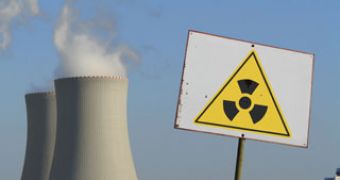Although the majority of the world's nations are making plans to put nuclear energy behind them, the US openly admits to having decided to keep 71 of their reactors working for an additional 20 years.
In the aftermath of Japan's Fukushima nuclear disaster from March 2011, European countries decided to shut down most of their nuclear power plants by the year 2030: about 150 reactors on this continent are to be decommissioned throughout the next 18 years.
Moreover, Germany and Belgium intend to entirely give up on using nuclear energy by the years 2030 and 2034, respectively.
As opposed to Japan, which turned from using nuclear power to generating energy by means of fossil fuel plants, it seems that most European nations are looking into the possibility of employing greener options.
On the other side of the ocean, Canada also agreed to shutting down 17 of its nuclear power stations.
Interestingly enough, US high officials announced that, as far as they are concerned, only 5 of the country's reactors would find themselves out of work by the year 2030.
Thus, as clickgreen.org.uk reports, 71 nuclear power plants throughout the country will remain standing for at least another 20 years.
From an environmentalist standpoint, this decision taken by the US government is rather alarming, especially given the fact that, presently, this country is responsible for 30% of the global nuclear generation of electricity and therefore poses great threats to the natural world.
Some might argue, and we might agree, that the US refuses to shut down their nuclear reactors because this will make them lose their status as the world's leading suppliers of commercial nuclear power.
Naturally, the loss of status is sure to be accompanied by a significant loss of income, so from an economic point of view the US government seems to have taken the right decision.

 14 DAY TRIAL //
14 DAY TRIAL //